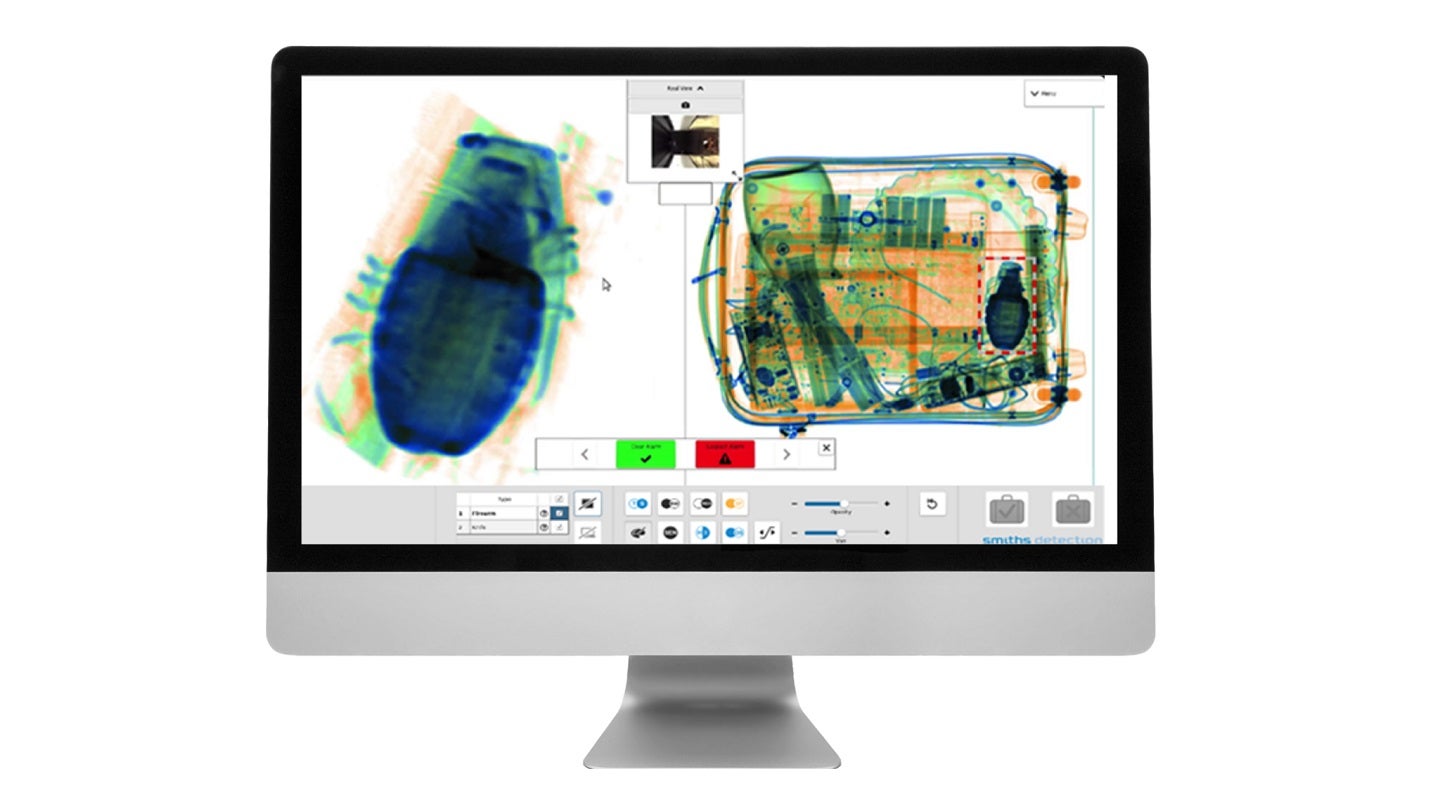
Security screening solutions provider Smiths Detection has expanded its portfolio of automatic object recognition algorithms with the launch of iCMORE Prohibited Items.
The new AI-powered proposition can be used to automatically identify objects deemed a security risk at airport security checkpoints.

Discover B2B Marketing That Performs
Combine business intelligence and editorial excellence to reach engaged professionals across 36 leading media platforms.
These objects include grenades, blasting caps, knives, scissors, axes, ammunition, firearms and blunt items.
The software’s easy-to-use feature with an intuitive interface also requires minimal training, stated the vendor.
The new automated detection algorithm will initially be available for use with the supplier’s Hi-SCAN 6040 CTiX Computer Tomography (CT) passenger checkpoint scanner.
It will gradually be rolled out across the firm’s additional dual-view and multi-view checkpoint systems for both regulated and unregulated markets.

US Tariffs are shifting - will you react or anticipate?
Don’t let policy changes catch you off guard. Stay proactive with real-time data and expert analysis.
By GlobalDataSmiths Detection Global Director Digital Market Cymoril Métivier said: “With the well-documented staffing pressures and increasing passenger numbers at airports, iCMORE Prohibited Items will be a key enabler for increased operational efficiency and throughput, while also reducing operational expenditure and facilitating resource planning.”
iCMORE Prohibited Items looks to attain the European Civil Aviation Conference’s (ECAC) new Automated Prohibited Items Detection Systems (APIDS) certification.
The aim is to offer more automated screening and support alarm-only viewing of X-ray images at checkpoints in airports, subsequently reducing the number of images required for manual viewing.
Remote screening or centralised image processing (CIP) uses one location for screening X-ray images from various systems in multiple locations to streamline the manual review process.
According to Smiths Detection, the new offering will help airports boost efficiency in operations, reduce operational costs and support resource planning to alleviate the impact of traffic spikes and labour shortfall.
Last month, the firm launched its new model of a fully automated tray return system, called iLane A20, developed in alliance with Interroll.





